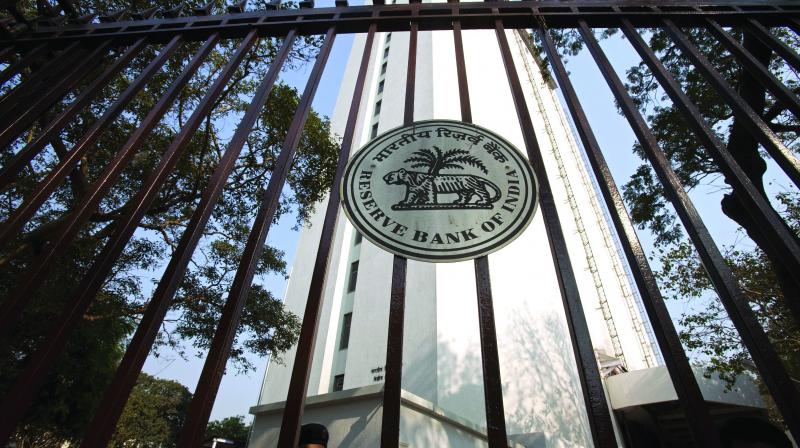RBI set to transfer Rs 1,76,000 crore to government
Centre’s bid to boost economy gets fillip.

MUMBAI: In a major boost to the government’s coffers, the Reserve Bank of India on Monday announced a highest dividend transfer ever of Rs 1.76 lakh crore to the government, that could help the latter to stimulate the economy without fiscal slippage and would boost sovereign bonds and rupee in the near term.
The RBI said that its central board has accepted the recommendations of Bimal Jalan-panel.
The high-level panel, under the leadership of former RBI governor Bimal Jalan, was formed to recommend ways to utilise RBI’s excess cash reserve and part transfer to the government.
Madhavi Arora, economist, forex and rates at Edelweiss said, “Clealry, the amount is higher than expected and with additional economic capital framework transfer, the ammunition from tax shortfalls could be partly met, thus alleviating some of the fiscal fragiliities. While the mode of ECF transfer has not been mentioned, if the amount is used to simply extinguish debt on RBI's balance sheet, it would tantamount to reducing government outstanding liability to that extent. Nonetheless, the surprise on the higher dividend transfer front should augur well both for sovereign bonds and INR in the near term."
Meanwhile the RBI Employees Union has urged the central bank to seek consensus on the Bimal Jalan panel report "in view of wider and long-term implications of the recommendations, irreversibility thereof".
The RBI said that the Jalan Committee’s recommendations were based on the consideration of the role of central banks’ financial resilience, cross-country practices, statutory provisions and the impact of the RBI’s public policy mandate and operating environment on its balance sheet and the risks involved.
The Committee’s recommendations were guided by the fact that the RBI forms the primary bulwark for monetary, financial and external stability. Hence, the resilience of the RBI needs to be commensurate with its public policy objectives and must be maintained above the level of peer central banks as would be expected of a central bank of one of the fastest growing large economies of the world.
The Central Board decided to maintain the realised equity level at 5.5 per cent of the balance sheet as recommended by the committee, down from existing 6.8 percent.
The resultant excess risk provisions of Rs 52,637 crore were written back, RBI said.
The Central bank’s board approved the dividend which comprises Rs 1.23 lakh crore of annual dividend for 2018-19 and Rs 52,637 crore from its surplus capital (economic capital framework).
Of the annual dividend amount of Rs 1.23 lakh crore, Rs 28,000 crore has already been paid out in the interim budget in February. Thus the effective annual dividend transfer ex-ECF from government stand out is around Rs 94,000 crore for FY20. This stands higher than the government’s own expectation as it had budgeted a dividend of Rs 90,000 crore from RBI as well as public sector units.
The government on Friday announced a six pronged economic booster including an immediate capital infusion of Rs 70,000 crore in public sector banks to arrest economic slowdown.
The transfer from its surplus reserves follows recommendation from a panel named by the RBI.

